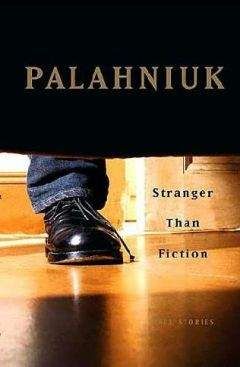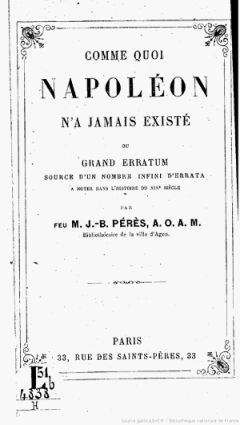Clive Cussler - Spartan Gold
“Here they come. With that four-wheel drive they’ll—”
“I know,” Sam muttered. “Hold on!”
The Lancia lurched sideways as the front wheels slipped into the mining road’s ruts. Sam tapped the brakes, gave the wheel a jerk, felt the rear wheels follow, then punched the accelerator again. The Lancia surged up the hill. The road was narrower than he’d imagined, no wider than six feet. When they reached the crest the trees closed in around them, boughs scraping the car’s sides and blotting out the sky. Headlights washed through the back window as the SUV started up the hill.
On the downslope now, Sam started to accelerate, but immediately tapped the brakes as the road veered right and deeper into the trees. Behind them the SUV’s nose cleared the crest, went airborne, then slammed down again.
“He’s going to miss it,” Remi said.
She was right. Still bouncing from its impact, the SUV overshot the turn and skidded to a stop, its hood buried in the trees. Sam glanced in the mirror in time to see the SUV’s brake lights pop on just before the Lancia plunged down another slope. Sam caught a fleeting glimpse of washboard ruts ahead and shouted, “Hold on.” Wheels thumping and shock absorbers shrieking in protest, the Lancia bumped over the patch, then up another slope, down the other side, and onto a straightaway. Sam accelerated. Branches slapped at the windshield, pinecones bouncing over the hood and over the roof. The SUV reappeared behind them, its headlights bouncing wildly as Kholkov negotiated the washboard.
While more durable and powerful than the Lancia, the SUV was also two feet wider, a disadvantage Sam now saw was bearing fruit. Where the pine boughs had simply swiped at the Lancia, they were thrashing the SUV’s hood and into the hole where the windshield had been. Branches were snapping off, jutting from the grille, and becoming entangled with the windshield wipers. The headlights fell back.
“Sam, watch out!”
He tore his eyes from the rearview mirror in time to see a boulder looming ahead. He spun the wheel hard right, sending the Lancia in a sideways skid. The boulder filled Sam’s window. He stepped on the gas as the Lancia lurched forward, but not quickly enough. With a crunch, the rear quarter panel glanced off the boulder and the rear side window shattered. The impact spun the Lancia’s tail around, off the road, and under the pine boughs. The side bumper smashed into a trunk and they jerked to a stop. The engine sputtered and died. Pine needles rained down on the windshield.
“There goes our deposit,” Remi said.
“Everybody okay?” Sam asked. “Remi?”
“Fine.”
“Splendid,” called Umberto.
“Bianco?”
“Still napping.”
Out Sam’s window they saw the SUV’s headlights filtering through the trees. He turned the ignition. Nothing.
“Still in gear,” Remi said.
“Damn. Thanks.”
He put the shifter into park and turned the ignition again. The engine chugged and wheezed but didn’t catch. He tried again.
“Come on, come on. . . .”
Down the road the SUV was halfway down the straightaway and approaching the boulder.
The Lancia’s engine caught, revved up, then coughed out.
“Cutting it close, Sam,” Remi said, teeth clenched.
He closed his eyes, said a quick prayer, tried again. The engine caught. He shifted into drive, spun the wheel right, and accelerated back onto the road.
“Umberto, slow them down!”
“Okay!”
Umberto stuck his Luger out the window and squeezed off two shots, and then two more. The bullets thudded into the grille, shattering the driver’s-side headlight. The SUV swerved left, heading straight for the boulder, then jinked right. The side mirror scraped the rock, shattered, and bounced away into the darkness.
The SUV’s lights filled the Lancia’s interior. Sam squinted and slapped the rearview mirror off-angle. He glanced over his shoulder and saw a hand holding a gun jut through the windshield gap.
“Down, get down!” he yelled. Remi slid to the floorboards.
The gun roared from the SUV, muzzle winking from the darkened interior. Umberto poked his head up over the seat, said, “I’ll slow them down,” then leaned out the side window with the Luger.
“No, don’t!”
Two more shots. Umberto screamed and rolled back into the car. “I’m hit!”
“Where?”
“The forearm! I’m okay,” he gasped.
“The hell with this,” Sam muttered. “Brace yourselves!”
He stood on the brakes for a two count, then punched the gas again. The SUV skidded, swerved, then slammed into the Lancia’s bumper. Sam had timed it well, accelerating just before the moment of impact. They pulled ahead of the SUV: twenty feet . . . thirty . . . four car lengths.
“Whoa!”
Abruptly, the trees disappeared from either side of them.
Remi popped her head up. “Oh, no!”
The Lancia’s wheels thumped over a berm and they were airborne. Open space loomed in the windshield. The Lancia landed again and bounced, the tires spraying gravel.
“Shoulder!” Remi called.
“I see it,” Sam replied and spun the wheel left. The Lancia went into a tail skid. He eased right, compensating, then straightened out. Out Remi’s window a boulder-strewn embankment dropped several hundred feet into a ravine.
Engine roaring, Kholkov’s SUV sailed over the berm and slammed onto the road.
“He’s not going to make it,” Remi said.
“Let’s hope.”
The SUV went into its own skid, but Kholkov overcompensated. The passenger-side rear tire crunched into the rocks along the shoulder and slipped over the edge. Carried by its own momentum, the rear third of the SUV’s chassis scraped over the dirt, edging inch by inch over the precipice until it stopped, partially suspended in space.
Sam took his foot off the accelerator and let the Lancia coast to a stop. Fifty feet behind them the SUV was seesawing at the road’s edge. Aside from the faint rhythmic groaning of stressed metal, all was quiet.
Remi sat up, looked around.
“Careful,” Sam whispered.
“Are we going to help them?” she asked.
A hand emerged from the darkened interior of the SUV and grasped a windshield wiper. A muzzle flashed from within the cab.
A bullet thunked into the Lancia’s bumper.
“The hell with them,” Sam said and stepped on the accelerator.
“That’s gratitude for you,” Remi said. “We could have bumped them into that ravine.”
“Something tells me we’re going to wish we did.”
CHAPTER 28
GRAND HÔTEL BEAUVAU VIEUX PORT, MARSEILLE, FRANCE
Even as Sam tipped the bellhop and shut the door behind him Remi was dialing the iPhone. Selma answered on the first ring. “Safe and sound, Mrs. Fargo?”
“Safe and sound,” Remi replied as she sat on the bed and kicked off her shoes. “Now will you tell me why we’re in Marseille?”
After leaving Kholkov and his mustachioed partner teetering on the precipice, they’d driven at the Lancia’s best speed to Nisporto. Umberto, his forearm wrapped in his own shirt, used the sat phone to alert his cousin to their arrival.
Nisporto, a village of a few hundred people, sat in the nook of a V-shaped cove ten miles up the coast from Portoferraio. When they arrived, Umberto’s wife, Teresa, and his cousins—all five of them—were waiting at the back door. While Teresa tended to Umberto’s wound, which had missed hitting any bones or arteries, the cousins bundled the now-conscious Bianco into the garage. The mother of the house, Umberto’s aunt Brunela, ushered Sam and Remi into the house and straight to the kitchen table, where she set about feeding them homemade pasta with onions, capers, olives, and red sauce. Thirty minutes later Umberto reappeared, his arm bandaged.
“We’ve put you in some danger,” Sam said.
“Nonsense. You’ve helped me redeem my honor. I think my father would have been proud.”
“I think he would, too,” Remi said, leaning over and kissing him on the cheek. “Thank you.”
Sam asked, “Do we want to know what you’re going to do with Bianco?”
“Here and in Corsica, he’s untouchable. On the mainland . . .” Umberto shrugged. “I’ll make some calls. I think with the right evidence, real or otherwise, the Carabinieri will be happy to embrace him. As for the other one, his partner . . . he’s a coward. We’ll be fine, my friends. Now, finish eating and we’ll see about getting you off the island.”
Knowing Bondaruk’s influence and Kholkov’s thoroughness made the Marina di Campo Airport too risky, they’d enlisted Umberto’s cousin Ermete, who ran a charter fishing boat, to ferry them back to Piombino on the Italian mainland. From there they’d returned to Florence, checked into the Palazzo Magnani Feroni, and called Selma, who’d directed them to e-mail her the photographed symbols from Laurent’s codebook then head straight to Marseille. The next morning they dropped the book itself into an overnight envelope for San Diego, then headed to the airport.
“Why all the mystery? Remi now asked Selma. Sam sat down on the bed and Remi put the phone on speaker.
“No mystery,” Selma replied. “I was hashing out some details, but I knew you’d want to be in Marseille one way or the other. By the way, Pete and Wendy are working on the symbols right now. It’s fascinating stuff, but the book’s condition is the big question—”
Sam said, “Selma.”
“Oh, sorry. Remember Wolfgang Müller, captain of the UM-77? I found him.”
“Him? You mean—”
“Yep, he’s still alive. Took a lot of legwork, but it turns out he was aboard the Lothringen when it was captured. After the war he was shipped back to Germany by way of Marseille. He got off the boat, but didn’t take the train home. He lives with his granddaughter. I’ve got their address. . . .”
The next morning they got up and walked to a café, Le Capri, a few blocks away on Rue Bailli de Suffren overlooking the Vieux Port, or Old Port, which was filled with sailboats of all shapes and sizes, their sails dancing in the offshore breeze. The bright morning sun glinted off the water. At the mouth of the port, rising from the north and south shorelines, were the forts of Saint Jean and Saint Nicholas. Above these on the hillsides stood the Abbaye de Saint Victor and the churches of Saint Vincent and Saint Catherine. Farther out, in the Bay of Marseille proper, lay the four-island archipelago of Frioul.
Sam and Remi had been to Marseille three times together, the last a few years earlier on their way to the Camargue up the coast. Every May some twenty thousand gypsies from western and eastern Europe gathered there to celebrate their gitane heritage.
They finished breakfast and hailed a taxi, giving the driver an address in the Panier, a cluster of medievalesque neighborhoods filled with tightly packed pastel-painted houses sandwiched between the town hall and the Vieille Charité. Wolfgang Müller lived in a two-story butter yellow, white-shuttered apartment on Rue de Cordelles. A blond woman in her mid twenties answered the door when they knocked.
“Bonjour,” Sam said.
“Bonjour.”
“Parlez-vous anglais?”
“Yes, I speak English.”
Sam introduced himself and Remi. “We’re looking for Monsieur Müller. Is he at home?”
“Yes, of course. May I ask what this is about?”
They’d already discussed this and decided honesty was the best course. Remi replied, “We’d like to talk to him about the UM-77 and the Lothringen.”
The woman cocked her head slightly, her eyes narrowing. Clearly her grandfather had told her about his time in the war. “One moment, please.” Leaving the door open, she walked down a hall and disappeared around the corner. They heard muffled voices for a minute, then she reappeared. “Please, come in. My name is Monique. This way, please.”
She led them into the front room, where they found Müller sitting in a rocking chair in front of a muted television tuned to France’s version of the Weather Channel. He wore a gray cardigan buttoned up to his throat, and his lap was covered in a blue and yellow argyle blanket. Completely bald, his face heavily wrinkled, Müller watched them through a pair of placid blue eyes.
“Good morning,” he said in a suprisingly strong voice. He gestured with a trembling hand to a floral-patterned couch across from him. “Please. Can I offer you some coffee?”
“No, thank you,” Remi answered.
“Monique tells me you found Ilsa.”
“Ilsa?” Sam asked.
“It’s what I named the 77. After my wife; she died in the Dresden bombings a few months after we left Bremerhaven. You found her in the cave, in Rum Cay?”
Remi nodded. “We were doing some exploring and came across the entrance. We found her sitting on the bottom, in almost pristine condition.”
“She’s still there?”
Sam smiled. “Well, no, not exactly. There was a . . . problem. We used her as what you might call an escape raft.”
“I don’t understand.”
“The main entrance collapsed. We rode the 77—”
“Ilsa.”
“Rode Ilsa down the underground river and out through another cave.”
Müller’s eyes went wide and he smiled. “That’s astounding. I’m glad she was put to good use.”
“We’ve arranged to have her transported back to the U.S. If you’d like, we’ll have her shipped—”
Müller was shaking his head. “That’s kind of you, but no. Keep her; take good care of her.” He smiled and shook his finger at them. “Something tells me you didn’t come all this way just to tell me that.”
“We also found the UM-34.”
At this Müller leaned forward. “And Manfred?”
“Captain Boehm was still aboard her.” Sam recounted their discovery of the sub, leaving out any mention of Bondaruk or Kholkov. “The authorities are salvaging her right now.”
“Mein Gott . . . We’d always worried about the weather. Those boats weren’t meant for open ocean.” Müller’s eyes went distant for ten seconds, then he blinked and refocused on them. “Manfred was a good friend of mine. It always pained me that I never knew what happened. Thank you.”
“The reason we’re here is the wine,” Remi said.
“The wine? Oh, the bottles . . . yes, we were going to celebrate with them after the mission was over. Are you telling me they survived?”
Remi nodded. “One aboard the 34, and one aboard Ilsa.”
“And the third? Did you find that one? As Manfred had the harder of the two missions, I gave him two bottles.”



